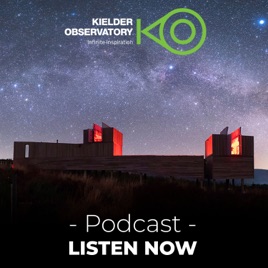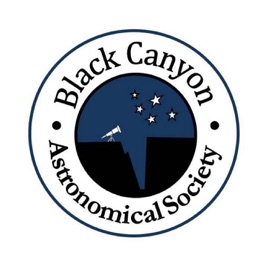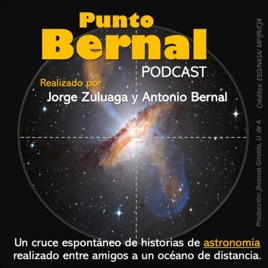
Advertise on podcast: Space Nuts
Rating
4.8 from
Country
This podcast has
404 episodes
Language
Publisher
Explicit
No
Date created
2016/01/30
Average duration
42 min.
Release period
6 days
Description
Join Professor Fred Watson, a world-renowned Astronomer at Large, and Sci-Fi Author and Broadcaster Andrew Dunkley, on their captivating podcast, Space Nuts. Dive into the vast universe of space, astronomy and astrophysics as they discuss the latest news, exciting space travel adventures, groundbreaking discoveries, and unravel the enduring mysteries of the cosmos. This engaging series offers a unique blend of expert insights and imaginative storytelling and listener input, making it a must-listen for space enthusiasts and science fiction fans alike. Become a supporter of this podcast: https://www.spreaker.com/podcast/space-nuts--2631155/support.
Social media
Check Space Nuts social media presence
Podcast episodes
Check latest episodes from Space Nuts podcast
#394: Gravitational Ballet: Unveiling the Secrets of Lagrange Points and Black Hole Mysteries
2024/02/25
Join us for an intergalactic conundrum that will stretch your mind to the far reaches of the universe! In this enlightening episode of Space Nuts, your hosts Andrew Dunkley and Professor Fred Watson are navigating the cosmic highways and byways, tackling some of the most perplexing questions out there.
First stop: the mysterious Lagrange points. Listener Jim from Texas is puzzled about how gravity is balanced at these points, especially L2 and L3. Fred serves up a celestial explanation that involves not just gravity but centrifugal force, too. It's a cosmic balancing act that keeps our space missions on course and our minds in awe.
Next, we're zooming into the heart of galaxies where supermassive black holes reign supreme. Kerry's burning question leads us to differentiate the gravitational effects of these cosmic giants from the elusive dark matter. How do astronomers measure their impact separately, and could we have misjudged their mass? Fred illuminates the dark corners of this astronomical puzzle.
And for the grand finale, we're pondering the ultimate 'what if': communication with a superior alien race. If we could ask them just one question, what would it be? From the practical to the profound, Andrew and Fred muse over what could be humanity's most significant query.
Whether you're a cosmic rookie or a seasoned stargazer, this episode is guaranteed to provide a gravity-defying leap into the unknown. So, strap in and prepare for a journey that's as educational as it is entertaining. And remember, keep those questions coming – they just might be the next big topic on Space Nuts!
For all this and more, subscribe to Space Nuts on your favorite podcast platform, and join us on this stellar adventure. Until next time, keep your eyes to the skies and your hearts full of wonder.
Become a supporter of this podcast and access commercial-free episodes: https://www.spreaker.com/podcast/space-nuts--2631155/support.
more
#393: The Death Star Doppelgänger: Diving into Mimas's Mysteries and Martian Microbes
2024/02/22
Prepare for a cosmic exploration that takes us from the realm of science fiction to the frontiers of science reality! In this thrilling episode of Space Nuts, join Andrew Dunkley and Professor Fred Watson as they delve into the mysteries of our very own solar system Death Star. No, it's not about to obliterate a planet; it's Mimas, Saturn's moon, capturing the scientific spotlight with a revelation that's causing quite the stir. Discover why this celestial body, bearing a striking resemblance to the infamous Star Wars construct, is now making waves with a potential sub-surface ocean hiding beneath its cratered façade.
But that's not all that's brewing in the interstellar pot. We're also venturing to the red plains of Mars, confronting the possibility that bacteria might not just survive but thrive under the harsh Martian conditions. What does this mean for future human missions to the Red Planet? Could these microscopic stowaways pose a threat to astronauts, or might they hold the key to unlocking the secrets of life beyond Earth?
With a blend of intrigue and expertise, Andrew and Fred navigate through these cosmic questions, offering insights that will leave you pondering long after the episode ends. So buckle up, space enthusiasts, as we embark on another adventure that's sure to expand your universe.
For those hungry for more interstellar knowledge, be sure to subscribe to Space Nuts on your favorite podcast platform and join our growing community of astronomy aficionados. With new episodes filled with astronomical wonders and answers to your burning space queries, Space Nuts is your gateway to the cosmos. Until next time, keep gazing upward and let your curiosity lead the way!
Become a supporter of this podcast: https://www.spreaker.com/podcast/space-nuts--2631155/support.
Show notes created by https://headliner.app
---
📋 Episode Chapters
(00:00) This is space nuts. Coming up, we're looking at the Death Star
(03:05) It might be opportunist bacteria that follows the bite that could cause Alzheimer's
(04:39) Fred says moon Mimus actually librates around planet Earth
(12:16) Andrew Ker: Mimas and Enceladus are totally different moons
(18:56) NASA to try flutter test on its ingenuity helicopter on Mars
(19:52) Scientists have tested four human infectious bacteria to survive harsh Martian environments
(26:37) Fred Watson says bacteria could pose a risk to astronauts on Mars
Become a supporter of this podcast: https://www.spreaker.com/podcast/space-nuts--2631155/support.
more
#392: The Spin Cycle of the Cosmos: Unraveling Universal Mysteries
2024/02/18
Strap in, Space Cadets, for another interstellar journey with the Space Nuts podcast! This week, Andrew Dunkley and Fred Watson tackle the cosmic curiosities that baffle even the brightest minds. From the perplexing simplicity overlooked by space agencies to the dizzying dance of celestial bodies, we're delving deep into the enigmas of the cosmos.
First up, we're debunking space myths with a true tale of the infamous space pen versus the humble pencil. Discover how practicality trumps simplicity when it comes to jotting down notes in zero gravity, and why sometimes, the most obvious solution isn't the best one for the job.
Next, we're spinning into the question that's got everyone's head turning: Why does everything in the universe love to twirl? Lynn from Victoria wants to know why stars, planets, and galaxies can't resist a good rotation. Fred unravels the mysteries of angular momentum and explains how the cosmic ballet is all part of the gravitational grand design.
And if we could converse with extraterrestrials, what would we ask? We're pondering the ultimate intergalactic icebreakers and saving this cosmic conundrum for our next episode.
So, whether you're a seasoned space traveler or a curious newcomer, join us for a voyage through the wonders of the universe. And remember, your questions fuel our adventures, so keep them coming!
For more interstellar insights, subscribe to Space Nuts on YouTube, become a patron for exclusive content, and explore the universe with us at spacenuts.io. Until next time, keep your eyes on the skies and your mind open to the infinite possibilities of space. Catch you on the next episode of Space Nuts!
Become a supporter of this podcast: https://www.spreaker.com/podcast/space-nuts--2631155/support.
more
#391: Chasing 'Oumuamua: The Interstellar Pursuit and the Pancake Planets Puzzle
2024/02/15
This eisode of Space Nuts is brought to you by Incogni. It's all about your online security and safety. To get the special deal Andrew talks about and endorses, just vist incogni.com/spacenuts
Prepare to embark on an astronomical chase like no other! In this riveting episode of Space Nuts, we delve into the ambitious plans to capture our solar system's elusive visitor, the exo-asteroid 'Oumuamua. Once thought to be an impossible feat, we explore the groundbreaking strategy that could see us rendezvousing with this interstellar interloper by 2057. The race is on to unlock the secrets it holds and to answer the burning question: is it a mere space rock or a piece of extraterrestrial technology?
But the intrigue doesn't stop there. We also turn our gaze to the cradles of cosmic birth, where planets emerge. Forget the traditional image of infant planets as perfect spheres; new research suggests these celestial newborns might be more M&M-shaped than we ever imagined. Join us as we dissect the latest theories on planet formation and ponder whether our very own Earth started life as an oblate spheroid.
With technical glitches providing an unexpected twist, Andrew and Fred navigate through these cosmic conundrums with their characteristic blend of expertise and humor. So, get ready to rethink your understanding of the cosmos, from chasing down interstellar objects to the peculiar shapes of nascent planets, all on this episode of Space Nuts.
Remember, the universe is vast and full of wonders waiting to be discovered. Don't miss a moment of the journey—tune in now to Space Nuts!
The resources mentioned in this episode are:
· Explore the detailed plan to chase 'Oumuamua at cosmosmagazine.com
· Dive into the latest theories on planet formation at phys.org (that's P-H-Y-S.org)
· Engage with the Space Nuts community and send in your cosmic queries or thoughts
Timestamped summary of this episode:
00:00:00 - Introduction: Andrew Dunckley sets the stage for today's cosmic topics.
00:02:15 - The Chase for 'Oumuamua: Discussing the potential mission to intercept the mysterious exo-asteroid.
00:11:30 - Planet Formation Theories: A new twist on how planets might take shape, suggesting they start as oblate spheroids rather than spheres.
00:20:45 - Listener Engagement: Encouraging the audience to share their thoughts and questions for future episodes.
Become a supporter of this podcast: https://www.spreaker.com/podcast/space-nuts--2631155/support.
more
#390: Wormholes, Black Holes, and Blue Giants: Your Space Questions Answered
2024/02/08
Are you ready to uncover the mind-bending secrets of our universe? Join us as we reveal the unexpected truth about the formation of habitable planets and the potential for multiple habitable worlds within a single solar system. You won't believe how many habitable planets could exist in the perfect cosmic sweet spot. And as we delve deeper into this cosmic mystery, prepare to be amazed by the surprising possibility of habitable moons orbiting gas giants. The answer lies in the unexplored realms of our vast universe, waiting to be unraveled. Stay tuned for an eye-opening journey through the cosmos that will challenge everything you thought you knew about planetary systems and cosmological potential. Get ready to expand your understanding of the universe in ways you never imagined. In this episode, you will be able to: · Explore the mysteries of fast blue transient explosions and their impact on our understanding of the universe. · Discover the fascinating Glass Z 12 high-redshift galaxy, offering insights into the early universe and cosmic evolution. · Grasp the uncertainties in astronomy research and how they drive innovation and breakthrough discoveries. · Uncover the complexity of the early universe and gain a deeper appreciation for its profound impact on cosmic evolution. The bottom line is Dave's right to question this, because we can't guarantee what the universe is going to do. We don't have any sort of control over that. All we can do is observe what it's doing now, and through the magic of the fact that we can look back in time, we get a good idea of what it's done in the past. - Fred Watson Glass Z 12 High-Redshift Galaxy Glass Z 12 is a high-redshift galaxy, noted for its advanced state of maturity shortly after the Big Bang. Its study, largely facilitated by the GrISM lens Amplified Survey from Space (GLASS) using the James Webb Space Telescope, sheds light on the early universe's formation and evolution. Despite the advanced observational technology, the nature of such galaxies holds persisting enigmas, stimulating ongoing research and debates in the astronomical community. The resources mentioned in this episode are: · Visit spacenutspodcast.com to send in your text or audio questions for the show. · Subscribe to the Space Nuts podcast on Apple Podcasts, Spotify, iHeartRadio, or your favorite podcast player. · Stream on demand at bytes.com to listen to the latest episodes of Space Nuts. · Check out the Space Nuts YouTube channel and subscribe for more space-related content. · Explore the Space Nuts website for more information and to send voice messages to the hosts. Timestamped summary of this episode:
00:00:00 - Introduction and Overview
Andrew Dunkley introduces the episode as an all-audience questions episode. He mentions the topics to be discussed, including fast blue transients, ghost galaxies, and the heaviest isotopes in planet formation.
00:02:23 - Fast Blue Transients and Galaxy Development
Derek asks about the cause of fast blue optical transient explosions, referencing the unusual shape of the explosion. Fred Watson discusses the mysterious nature of fast blue optical transients and the potential reasons behind their unique properties.
00:09:44 - Early Universe and Galaxy Evolution
Renny inquires about the development of mature galaxies like glass z 13 in the early aftermath of the Big Bang. Fred Watson explains the significance of glass z 12 as an early galaxy and addresses the possibility of wormholes and membrane theory in relation to galaxy evolution.
00:17:08 - Expansion of the Universe and Dark Energy
Dave from Calgary asks about the expansion of the universe and its acceleration. He questions whether the universe will ever slow down due to dark energy. Fred Watson discusses the concept of dark energy and explains why the universe's expansion is unlikely to slow down.
00:18:05 - Comparing Bullet Firing with Universe Expansion
Discusses...
more
#389: Ingenuity's Incredible Martian Journey: Helicopter Makes History Before Bittersweet Ending
2024/02/01
Are you eager to uncover the secrets of space exploration and gain expert insights? Ready to grasp complex concepts and challenges in the realm of astronomy and astrophysics? I've got just the solution to enhance your understanding and satisfy your curiosity. Let's dive into the Space Nuts podcast and unravel the mysteries of the universe together! In this episode, you will be able to: · Explore the Dark Matter Halo of Our Galaxy: Unravel the mystery surrounding dark matter and its impact on our galaxy. · Uncover the Mysterious Presence of Methane on Mars: Discover the intriguing presence of methane on the Red Planet and its implications for potential life. · Delve into Speculative Ideas on Cooling the Earth: Gain insights into innovative concepts for mitigating the Earth's rising temperatures. · Discover the Challenges of Moving Planets: Understand the complexities and obstacles involved in the theoretical idea of planetary relocation. Life becomes routine, is what. Yes, that's what it is. Yeah, I get that. I quite like routine, actually, unlike my other half, who doesn't, which is why she's constantly conjuring up these tours that we do to take people around to places where we've never been. - Professor Fred Watson
Finally, the hosts examine speculative ideas from listeners relating to ambitious, large-scale engineering projects, such as the Solar Pergola and moving planets. Reminding us that while such concepts may dazzle the imagination, the practical feasibility and risks associated with these ideas are significant. The focus on prudence and consideration of potential unintended consequences underscores the responsibility that comes with technological advancements, especially when meddling with natural systems of the cosmos. It's The resources mentioned in this episode are: · Visit spacenutspodcast.com or spacenuts.io to submit your questions for the next all-question episode. · Check out the Space Nuts shop on the website for Space Nuts merchandise, including t-shirts. · Become a patron of Space Nuts to support the podcast and gain access to exclusive benefits. · Listen to the Space Nuts podcast on Apple Podcasts, Spotify, iHeartRadio, or your favorite podcast player. · Stream Space Nuts on demand at bitesz.com. Timestamped summary of this episode:
00:00:00 - Introduction and Ingenuity's End
Andrew Dunkley introduces the topics for this episode, including the end of the mission for the ingenuity helicopter on Mars after suffering damage from a landing mishap.
00:03:42 - Slim Moon Lander's Upside-Down Landing
The discussion moves to the slim moon lander's successful but tilted landing on the moon, leading to challenges with solar panel orientation. Despite the setback, some scientific experiments are being carried out.
00:13:13 - Arno Penzias' Legacy
The passing of physicist Arno Penzias is noted, highlighting his groundbreaking discovery of cosmic microwave background radiation, which confirmed the Big Bang theory and contributed to the decline of the steady state theory of the universe.
00:16:20 - Quirks of Dark Matter in the Milky Way
The conversation shifts to an exploration of the unique behavior of dark matter in the Milky Way, particularly in its extremities, suggesting that our galaxy's dark matter may exhibit distinct characteristics compared to other galaxies.
00:16:31 - Closing Remarks
Andrew Dunkley and Professor Fred Watson wrap up the episode, thanking listeners for tuning in and hinting at the intriguing nature of the dark matter discussion as a teaser for future episodes.
00:17:09 - Understanding the Galaxy's Geometry
Fred and Andrew discuss the challenges of mapping our galaxy's geometry, including the difficulty of establishing details about our own galaxy due to our position within it.
00:19:10 - The Mystery of Galaxy Rotation
The conversation explores the discovery of the unusual flat rotation curve of...
more
#388: Galacticide
2024/01/25
🌏 Get Our Exclusive NordVPN deal here ➼ https://nordvpn.com/spacenuts or use the checkout code SPACENUTS. It’s risk-free with Nord’s 30-day money-back guarantee! ✌
If you're feeling frustrated because you've been reading multiple scientific articles, but still feel confused about space exploration, then you are not alone! If you're feeling overwhelmed because you've been watching documentaries about the universe, but still struggle to understand the latest scientific discoveries, then you are not alone! If you're feeling discouraged because you've been attending lectures on space exploration, but still find it difficult to grasp the concepts, then you are not alone! If you're feeling disheartened because you've been following space-related news, but still lack the in-depth knowledge you desire, then you are not alone! In this episode, you will be able to: · Explore the Universe's Rotation and Exploration: Uncover the mysteries of the universe's rotation and delve into the latest space exploration discoveries. · Unravel the Temperature of Space and James Webb Telescope: Understand the extreme temperatures of space and the groundbreaking capabilities of the James Webb telescope. · Discover Curiosities About Galaxies and the Expanding Universe: Delve into the fascinating world of galaxies and gain insights into the expanding universe, sparking your curiosity about the cosmos. · Engage with Listener Questions and Interactions: Engage with our community as we answer intriguing listener questions and foster a deeper understanding of space exploration. The background temperature of space is indeed 2.7 degrees Kelvin. And what that is, is the radiation from the big Bang. - Fred Watson Unleash Your Curiosity about Galaxies and the Expanding Universe The boundless nature of the universe and the enigma of what lies beyond our vision sparks the hosts' curiosity. They express a compelling interest in observing the expanding universe's limits and finding what lies beyond the visible cosmos. Furnishing the listeners with a mental image of the unknown, the episode fosters a deeper appreciation for space exploration and the mysteries it holds. The resources mentioned in this episode are: · Visit the Space Nuts podcast website to listen to more episodes and submit your own questions or comments. · Check out the James Webb Space Telescope's latest updates and discoveries on the NASA website. · Explore the concept of the equation of state and its implications in cosmology through reputable scientific sources and publications. · Learn more about the temperature of space and the cosmic microwave background radiation from reliable scientific sources and educational materials. · Stay updated on the latest space news and discoveries by subscribing to the Space Nuts podcast on your preferred podcast platform. · The key moments in this episode are:
00:00:00 - Introduction and Oldest Black Hole Discovery
00:02:52 - James Webb Space Telescope's Discovery
00:11:32 - Asteroid Impact on Earth
00:16:33 - Astronomer Christian Sarnesky's Discoveries
00:12:23 - Summary and Conclusion
00:17:02 - Meteorite Recovery and Asteroid Monitoring
00:19:42 - Mars Copter's Communication Issues
00:23:48 - Ingenuity's Success and Challenges
00:25:41 - Equation of State and Cosmological Constant
00:30:25 - Does the Universe Rotate?
00:35:04 - Rotation of the Universe
00:36:27 - Hypothetical Telescope
00:41:41 - Temperature of Space
00:45:19 - Listener Feedback
Explore the Universe's Rotation and Exploration This podcast episode embarks on a fascinating discussion about the rotation of the universe. While it remains a challenging concept without a frame of reference, the possibility is raised that if multiple universes exist, our own could indeed be rotating. Furthermore, the hosts...
more
#387: Dark Energy Survey Sparks New Questions About the Universe
2024/01/18
If you're feeling frustrated by the lack of understanding dark energy, despite hours spent researching and reading about it, then you are not alone! Despite your efforts to grasp the concept, you may feel like you're still no closer to unraveling the mysteries of the universe. The confusion and uncertainty may be leaving you feeling disheartened and discouraged about ever truly understanding dark energy. But rest assured, many others share your struggle and are also seeking clarity on this complex topic.
In this episode, you will be able to:
· Understand the origins of water in the solar system and its significance for life beyond Earth.
· Explore the fascinating process of the formation of the solar system and how it shaped our cosmic neighborhood.
· Discover the potential for terraforming Venus, unlocking the possibility of transforming inhospitable planets into habitable ones.
· Uncover the abundance of water in the solar system and its implications for future space exploration and colonization.
· Learn about the slingshot effect in space missions and how it enables spacecraft to travel vast distances with limited fuel.
'Two out of the three atoms in a water molecule are hydrogen. So two thirds of your 75%, which is 50% of the atoms in your body, come from the Big Bang. Why? You feel old these days? 13.8 billion year old hydrogen.' - Andrew Dunkley
Terraforming Venus Possibilities: Terraforming Venus is a topic of fascinating discussion. The suggestion of transforming its carbon dioxide-heavy atmosphere using photosynthetic algae could potentially cool it down over extended periods. However, the surface atmospheric pressure on Venus is significantly higher than Earth's, making such an endeavor incredibly complex and presently unfeasible.
The key moments in this episode are:
00:00:00 - Introduction to Dark Energy Survey
00:08:15 - Peregrine Lander Mission
00:13:48 - Dark Energy Survey Results
00:16:18 - Quintessence and Thunderplump
00:17:38 - Exploring the Cosmic Megastructure
00:19:56 - Universe Homogeneity and Big Ring Discovery
00:23:16 - Speculation on Megastructure Origins
00:24:53 - Unraveling the Mystery of Cosmic Structures
00:29:32 - Addressing Audience Feedback
00:34:17 - Formation of the Solar System and Origin of Water
00:37:27 - Slingshot Effect and Spacecraft Momentum
00:40:43 - Terraforming Venus and Atmospheric Cleanup
00:45:04 - Are Humans Stars? Stardust Origins
The resources mentioned in this episode are:
· Visit spacenutspodcast.com or spacenuts.io to send in your text or audio questions.
· Listen to Space Nuts on Apple Podcasts, Spotify, iHeartRadio, or your favorite podcast player.
· Stream on demand at bitesz.com or spacenuts.io.
· Check out the documentary The Stars by the BBC.
· Send feedback or questions through the Space Nuts website.
Become a supporter of this podcast: https://www.spreaker.com/podcast/space-nuts--2631155/support.
more
#386: Is Our Solar System Still Full of Surprises?
2024/01/11
For our exclusive NordVPN deal (as explained by Andrew) simply visit www.nordvpn.com/spacenuts - you'll be glad you did!
Timestamped summary of this episode:
00:00:00 - Introduction and Peregrine Moon Lander
Andrew Dunkley introduces the episode and discusses the recent launch of the Peregrine moon lander, which has encountered a mission failure problem.
00:03:48 - Issues with Peregrine Moon Lander
Fred Watson discusses the issues faced by the Peregrine moon lander, including the inability to charge its batteries and critical propellant loss, leading to doubts about its planned lunar landing.
00:11:00 - Search for Copernicus's Remains
Fred Watson dives into the fascinating search for the remains of Nicholas Copernicus, the renowned astronomer and mathematician, highlighting the historical significance and efforts to identify his burial site.
00:14:16 - Discovery of Copernicus's Skeleton
Fred Watson details the discovery of a skeleton near the altar of the Holy Cross in Frombork Cathedral, believed to potentially belong to Copernicus, and the subsequent genetic analysis to confirm its identity.
00:15:41 - DNA Analysis and Book Reference
The discussion continues with the challenges of conducting DNA analysis for confirming Copernicus's remains, as well as the unexpected discovery of a book used by Copernicus, adding further depth to the search for his identity.
00:16:36 - Unveiling Copernicus' Skeleton
Researchers in Sweden used genetic material from hairs found in a book to match them with Copernicus' teeth and bones, providing strong evidence of his identity.
00:18:47 - The Vasa Ship and its Tragic Fate
A brief discussion about the Vasa, a 17th century sailing ship that sank on its maiden voyage in Stockholm due to a lopsided weight distribution and other theories.
00:20:37 - The Identification of Nicholas Copernicus
After confirming the identity of Copernicus' skeleton, it is likely that the bones have been reburied, marking a significant breakthrough in science history.
00:21:31 - Mystery of Titan's Ghost Islands
Cassini's radar imaging of Titan revealed temporary bright patches in the seas, sparking theories about their composition and behavior, shedding light on the mysteries of this alien world.
00:29:33 - Quantum Entanglement and Additional Dimensions
Rusty's question about quantum entanglement prompts a discussion on the potential existence of additional dimensions and ongoing research into fundamental physics, including the search for dark matter and dark energy.
00:34:20 - Quantum Confusion
Discussion on the complexity of quantum-related topics and the potential for confusion in understanding them.
00:35:16 - Planetary Formation
Explanation of how the location of the frost line in the solar system led to the differentiation between rocky and gas giant planets.
00:38:08 - Ice Planets and Dwarf Planets
Exploration of the composition of dwarf planets and how the distance from the sun impacted their formation and characteristics.
00:40:58 - Solar System Variations
Consideration of the variability of planetary formations in other solar systems compared to the unique characteristics of our own solar system.
00:42:28 - Uncharted Territories
Contemplation of the possibility of undiscovered elements in the outer reaches of the solar system and the ongoing search for new celestial bodies.
Join us as we delve into the recent mission failure of the Peregrine moon lander and the search for the lost grave of Copernicus. But just when it seemed like we might unravel the mysteries of the universe, a shocking turn of events leaves us hanging in the balance. Are we on the brink of a groundbreaking discovery, or will the secrets of space remain elusive?br...
more
Probing the Dark Unknowns: Seeking Clarity on Dark Matter and Energy | #385
2024/01/04
In a serendipitous moment, Andrew Dunkley's passion for astronomy was sparked by a chance encounter with a telescope at a friend's house. Little did he know that a simple gaze through the lens would ignite a lifelong curiosity for the mysteries of the universe. As he delved into books, documentaries, and conversations with fellow enthusiasts, his thirst for cosmic knowledge only grew stronger. What cosmic wonders await those who seek to understand the stars and galaxies?
In this episode, you will be able to:
· Explore the fascinating world of galaxies' rotation curves and their intriguing variations. · Discover the hidden secrets of spiral arms visibility through the lens of infrared observations. · Understand how gravity bends space and its profound implications on the universe.
· Uncover the crucial distinctions between dark matter and dark energy, unraveling cosmic mysteries.
"You can do anything in science fiction.' - Andrew Dunkley
Bending of Space due to Gravity
Gravitational influence on the bending of space is a central concept in Einstein's theory of relativity. It proposes that the force of gravity resulting from an object's mass distorts space around it. This remarkable insight about the interplay between gravity and spacetime allows us to understand extraordinary phenomena, such as the distortion of star positions during an eclipse. This theory immensely enriches our understanding of the universe and shapes our perception of space and time.
The resources mentioned in this episode are:
· Visit spacenutspodcast.com to send in your own audio or text questions for the show.
· Check out the AMA link on the website to submit your questions for the next episode. ·
Click on the tab on the right-hand side of the homepage to send in your audio questions. · Listen to the Space Nuts podcast on Apple Podcasts, Google Podcasts, Spotify, iHeartRadio, or your favorite podcast player. ·
Stream on demand at bitesz.com to catch up on previous episodes. ·
The key moments in this episode are:
00:00:00 - Thank you and break announcement
00:02:22 - Q&A Episode Introduction
00:08:01 - Understanding Gravity
00:11:14 - Theoretical Walk on a Neutron Star
00:16:46 - Clarification on Biochemical Processes
00:17:25 - RNA as the precursor to DNA and proteins
00:18:57 - Dark energy and dark matter web
00:22:17 - Universe's expansion and the role of dark energy
00:25:03 - White holes and dark matter
00:29:13 - Period of inflation and the speed of light
00:34:21 - The World Wide Web nickname
00:36:14 - Speed of light and space travel
00:37:22 - Counting stars in the Milky Way
00:43:16 - Planetary diversity and moon composition
00:47:22 - Tipler cylinder and time travel
00:51:37 - The spacecraft design and terraforming challenges
00:52:29 - Science fiction and John Birmingham's latest series
00:53:38 - The Super Dunk series and a request to the author
00:54:27 - Audience engagement and question submissions
00:55:23 - Conclusion and farewell
Variation of Rotation Curves
The variation of rotation curves is an intriguing aspect of galaxies that fascinates astronomers. It refers to the speed at which stars and other celestial objects move around the center of a galaxy, and how this speed impacts the overall shape and structure of the galaxy. This element of astrophysics provides critical insights into how galaxies evolve over time, contributing significantly to our understanding of the universe's dynamics.
Infrared Observations and Spiral Arms
Infrared observations are pivotal to astronomy, allowing us to perceive celestial bodies and phenomena that remain concealed in other wavelengths. One interesting feature that can be detected in this way is the dust in...
more
#384: Black Holes: A Surprising New Source for Mysterious Dark Energy? & Other Listener Questions Answered
2023/12/28
While Fred and Andrew head off on an end of year break....we dip back into our recent past and bring you one of our 'all-questions' episodes for a repeat run, just in case you missed it the first time or simply need a refresh.
Are you ready to have your understanding of the universe redefined? Picture this: a renowned expert advisor on dark and quiet skies, engaged in international cooperation at the United Nations, suddenly encounters a groundbreaking discovery that could revolutionize our perception of space and time. This unexpected twist in the story opens up a whole new world of possibilities, hinting at a connection between black holes and dark energy that could change everything we thought we knew about the cosmos. Stay tuned to find out more about this mind-boggling revelation.
In this episode, you will be able to:
· Explore the mysteries of black holes and dark energy to unlock the secrets of the universe. · Understand the mind-bending concept of the universe's expansion and its implications for the future of space exploration.
· Delve into the dangers posed by rubble pile asteroids and the potential impact on life on Earth.
· Discover the fascinating process of magnetic fields escaping from black holes and its significance in our understanding of the cosmos.
· Uncover the potential of artificial gravity and nuclear fusion, offering a glimpse into the future of space travel and habitation.
'Gravity and acceleration are equivalent. We can generate an acceleration by having a rotating wheel, exactly as in 2001, a space odyssey.' - Fred Watson
The resources mentioned in this episode are:
· Visit the Space Nuts website to submit your own voice question or text question for the podcast.
· Check out the Space Nuts shop on their website for space-themed merchandise and support the podcast.
· Become a patron of Space Nuts to support the show and gain access to exclusive benefits. · Listen to the Space Nuts podcast on various platforms including Apple Podcasts, Google Podcasts, Spotify, and iHeartRadio.
· Stream Space Nuts on demand at bitesz.com.
Become a supporter of this podcast: https://www.spreaker.com/podcast/space-nuts--2631155/support.
more
#384: Black Holes: A Surprising New Source for Mysterious Dark Energy? & Other Questions Answered
2023/12/27
While Fred and Andrew head off on an end of year break....we dip back into our recent past and bring you one of our 'all-questions' episodes for a repeat run, just in case you missed it the first time or simply need a refresh.
Are you ready to have your understanding of the universe redefined? Picture this: a renowned expert advisor on dark and quiet skies, engaged in international cooperation at the United Nations, suddenly encounters a groundbreaking discovery that could revolutionize our perception of space and time. This unexpected twist in the story opens up a whole new world of possibilities, hinting at a connection between black holes and dark energy that could change everything we thought we knew about the cosmos. Stay tuned to find out more about this mind-boggling revelation.
In this episode, you will be able to:
• Explore the mysteries of black holes and dark energy to unlock the secrets of the universe.
• Understand the mind-bending concept of the universe's expansion and its implications for the future of space exploration.
• Delve into the dangers posed by rubble pile asteroids and the potential impact on life on Earth.
• Discover the fascinating process of magnetic fields escaping from black holes and its significance in our understanding of the cosmos.
• Uncover the potential of artificial gravity and nuclear fusion, offering a glimpse into the future of space travel and habitation.
Gravity and acceleration are equivalent. We can generate an acceleration by having a rotating wheel, exactly as in 2001, a space odyssey. - Fred Watson
The resources mentioned in this episode are:
• Visit the Space Nuts website to submit your own voice question or text question for the podcast.
• Check out the Space Nuts shop on their website for space-themed merchandise and support the podcast.
• Become a patron of Space Nuts to support the show and gain access to exclusive benefits.
• Listen to the Space Nuts podcast on various platforms including Apple Podcasts, Google Podcasts, Spotify, and iHeartRadio.
• Stream Space Nuts on demand at bitesz.com.
more
Podcast reviews
Read Space Nuts podcast reviews
conaninspace
2023/08/02
Legal Earthling
This wondrous podcast reminds me of the news on my Grezianik-fouty back home. I miss home but, to my surprise, applying for a “green card” was simply ...
more
isksmkdifj
2024/02/20
Why is THAT the name
Don’t name a podcast that is for kids space 🥜 but besides that it is a pretty good podcast
Devil pony 123456
2023/05/21
Love it
Keep up the great work this is so funny and freaky but in a great way!
SiriusHeavens
2023/04/12
My favourite podcast!
Thank you so much for such a wonderful, informative and humorous podcast
Bryce wig gens bun
2023/01/07
Great podcast!
Love listening to you both, keep up the great work!!
guitarsandbeaches
2022/09/04
Great!
Love this podcast!
ragnellsdream
2022/08/20
Always Enjoy Space Nuts
Andrew and Fred are wonderful to listen too. I never tire of This podcast. Thank you gentlemen. They are a perfect compliment to one another.
MarkChicagoIL
2022/06/30
Great Show
The best astronomy-focused podcast.
JordanP1413
2022/05/03
Absolutely Incredible!!
One of the most informative and entertaining podcasts out there. Huge fans of Andrew & Professor Watson!! Keep up the great work gentlemen!!
LordNikon78
2022/05/14
Too many adverts
Good show but it loses my attention when 1/3 the time it’s a commercial or they are pushing gear or something. Just really really heavy amount compare...
more
Podcast sponsorship advertising
Start advertising on Space Nuts & sponsor relevant audience podcasts
You may also like these astronomy Podcasts

0
0
38
Kielder Observatory Podcast
Kielder Observatory Astronomical Society

0
0
179
SkyCaramba
SkyCaramba

0
0
19
Western Slope Skies
Unknown

0
0
91
Punto Bernal
Punto Bernal

5
9
51
The Blunt Report
The Blunt Report

4.6
5
251
Ciel & Espace
Ciel & Espace

4.8
5
50
Obsesión por el Cielo
Pedro Valdés Sada

5
2
10
The Scoobi N Chooi Show
Scoobi N Chooi show

0
0
39
Poussière d'étoile
Ripley Media

0
0
28
Evrim Ağacı TV: Canlı Bilim Yayınları
Evrim Ağacı



